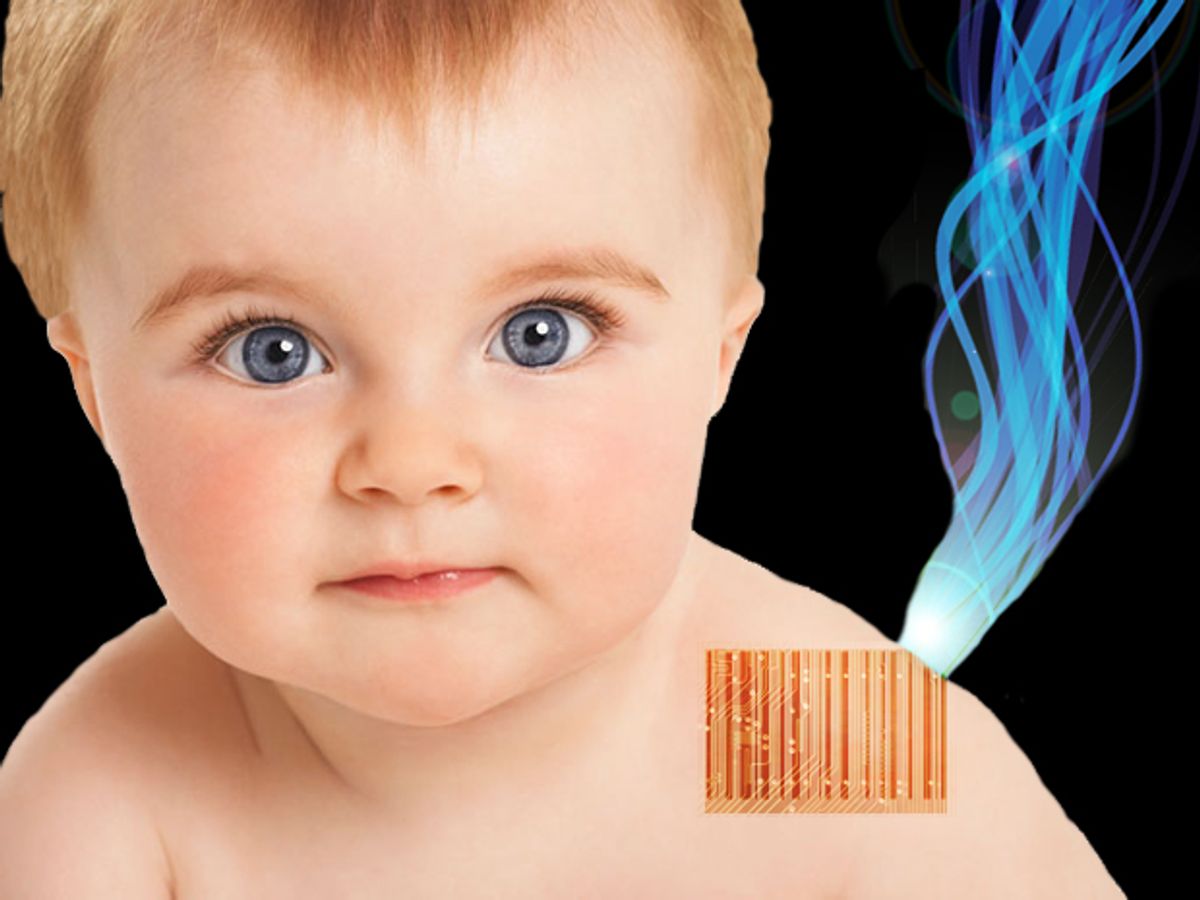The data, possibly collected from one or more sensors in the body, would be transmitted to cellphones or tablets where apps would give parents and pediatricians insights into the baby's health and condition in real-time.
And it won't be just children who are sensored up, Saxon says. Athletes, soldiers, and just about everybody else would benefit. It's part of a future in which “patients own their data and have the resources to interact with it,” Saxon says. “They'll manage symptoms and medication, food and physical activity,” she predicts. “You'll be able to curate your own body metrics.” And that's not all. Noting that the deluges of data will be valuable to pharmaceutical, biomedical, and other companies, Saxon suggested that “maybe you should be paid for your data.”
Saxon, addressing a standing-room-only crowd of about 500 people, was the first speaker at the IEEE Technology For Humanity series at the SXSW Interactive conference in Austin, Texas, on Saturday. She acknowledged the potential pitfalls that have fueled apprehension about such schemes,
It will only work, she says, if people are “using machines to amplify their humanity, not to scare the heck out of them.” Clever apps could let people “discover revelatory stuff about themselves,” she pointed out. “It should be fun—like cinematic arts, it should engage me, and be on-demand.” An avid popular music fan, Saxon noted how she became a believer in Spotify, the music streaming and recommending service, after it steered her to the rapper Lil Wayne. She had never been a rap fan, but Spotify “decided I'd like him, and I do!” she exclaimed.
To underscore the point, Saxon set up a Spotify playlist, which is described on her YouTube channel.
Already, she said, 27 percent of Americans use some sort of gear that measures biometric data, such as a wristband that records timing of physical activity and sleep. These will evolve into “incredible sensors that can change the human-machine interface,” she predicted. They'll be implantable, networked, and durable, and become a part of our leisure and personal lives. Imagine “merging sensors from our bodies to those of, say, a high-end car, to enhance the experience of driving the car.” Or, “suppose you've had a fight with your husband. How does digital data inform you and help you move beyond it?”
One coming application will be tiny, ingestible sensors, which will be taken with pills. The sensors will affirm that a patient has taken a correct dosage, and then monitor physiological reactions to the dose, enabling doctors to fine-tune it. Thirty to 50 percent of patients don't take drugs in the dosages prescribed, Saxon said. In fact, Saxon noted, an ingestible-sensor scheme developed by Proteus Digital Health has already been FDA approved, and is being rolled out for heart-failure related drugs.
Getting back to the children, Saxon noted that widespread use of sensors in young people could be particularly invaluable in developing countries, where outbreaks of disease are more common and often difficult to analyze and trace. Undernourishment, too, could be better understood. "Major public health concerns could be addressed in these ways," Saxon said. And the benefits would accrue in some surprising places—some 2 million children live in poverty and are undernourished in her home state of California, according to Saxon.
Glenn Zorpette is editorial director for content development at IEEE Spectrum. A Fellow of the IEEE, he holds a bachelor's degree in electrical engineering from Brown University.




